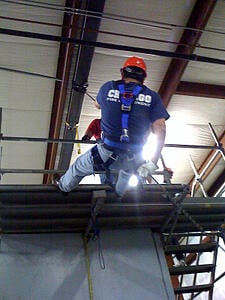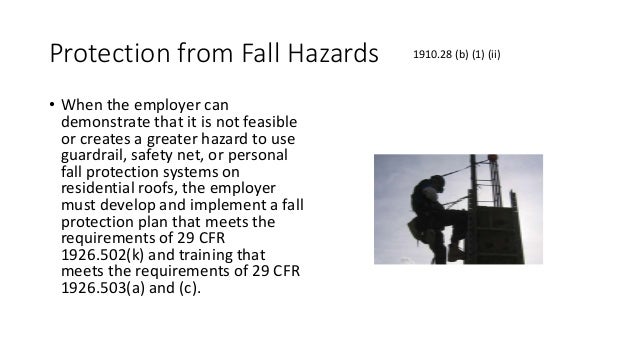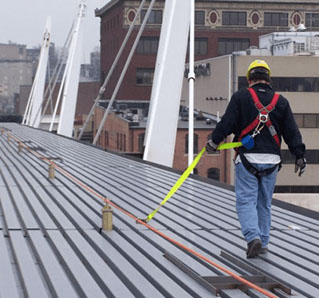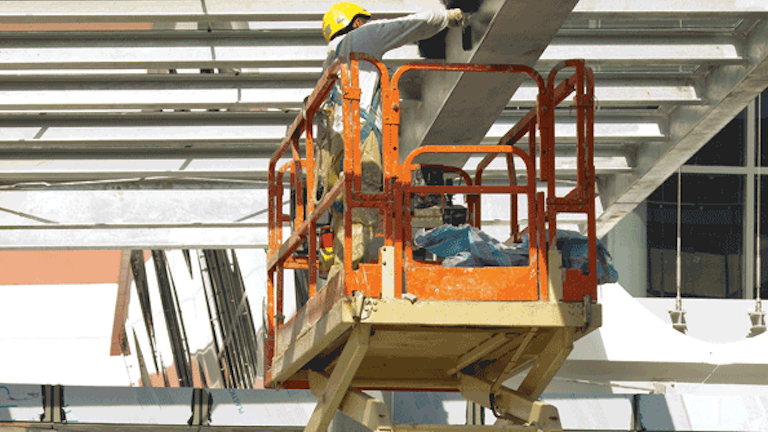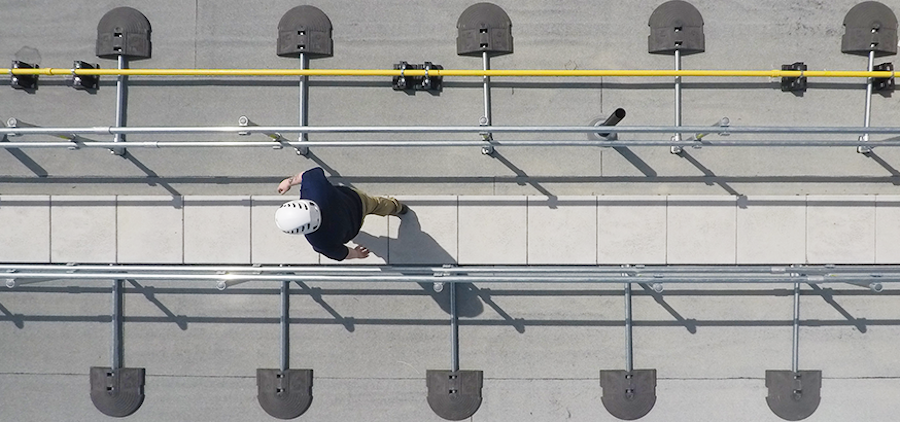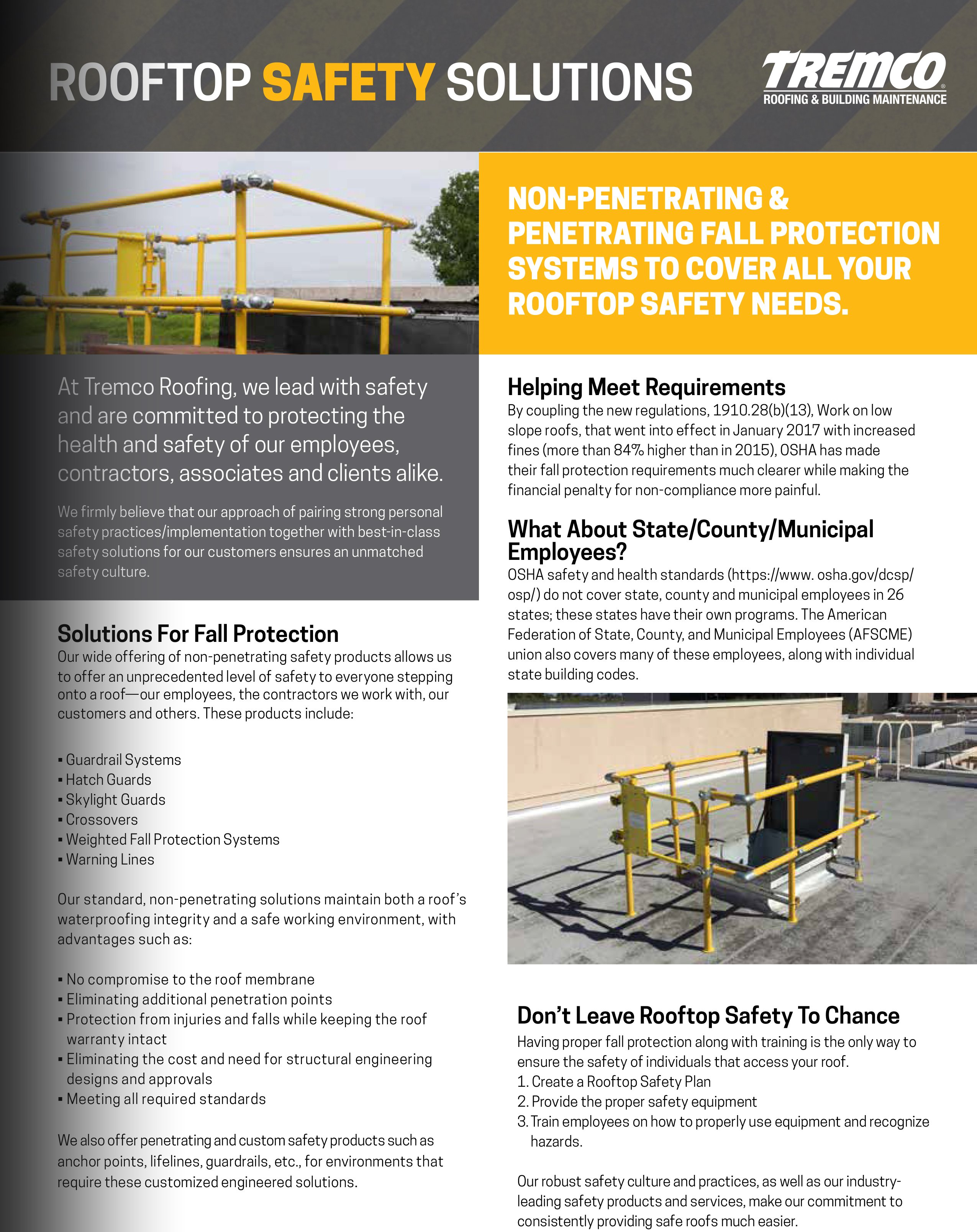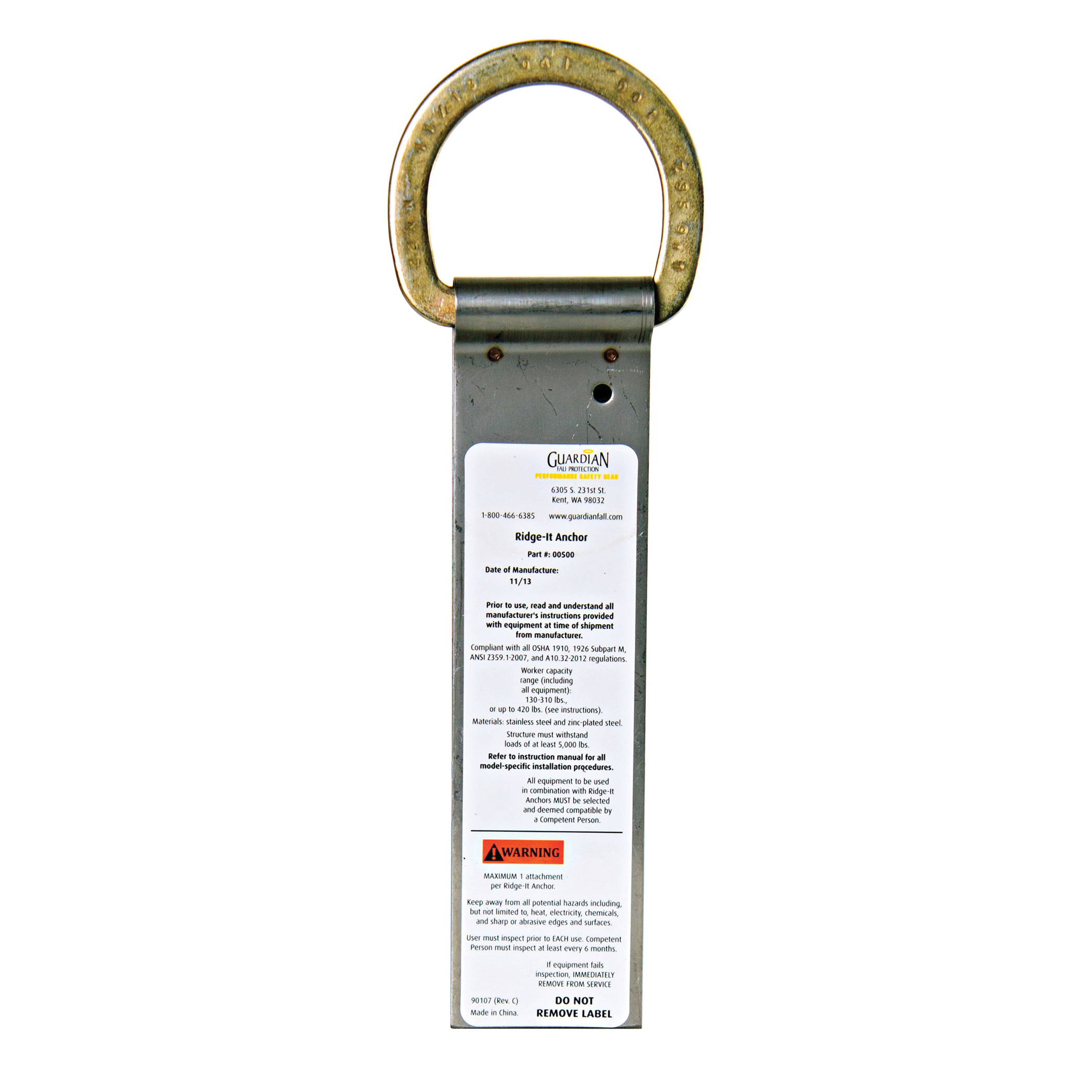Osha fall protection standard 1926 and 1910 confusion there s a common misconception that osha s 29 cfr 1910 and 29 cfr 1926 standards are interchangeable.
Osha roof fall protection 1910.
Unless stated otherwise the employer must ensure that all fall protection and falling object protection required by this section meet the criteria in 1910 29 except that personal fall protection systems required by this section meet the criteria of 1910 140.
1 duty to have fall protection 1926 501 2 ladder safety 1926 1053 3 fall protection training requirements 1926 503 4 eye and face protection 1926 102 5 general scaffold requirements 1926 451 6 general safety and health provisions 1926 20 7 head protection 1926 100 8 fall protection systems criteria and practices 1926 502.
Grab bars not required at hatch exits.
General industry safety orders.
Two osha standards can apply 29 cfr 1910 which governs general industry safety standards and 29 cfr 1926 which governs construction sites specifically.
Note to paragraph d.
Except as otherwise provided in paragraph b of this section each employee engaged in roofing activities on low slope roofs with unprotected sides and edges 6 feet 1 8 m or more above lower levels shall be protected from falling by guardrail systems safety net systems personal fall arrest systems or a combination of warning line system.
Scaffolds general requirements t8ccr 1635 1 1637 article 22.
Floor roof and wall openings t8ccr 1632 1633 article 21.
Standard specifications t8ccr 3209 3239 in subchapter 7.
1910 29 g 4 platforms used with fixed ladders provide a horizontal surface of at least 24 inches by 30 inches 61 cm by 76 cm.
Although these standards are similar and have some overlap they are not interchangeable.
Fall protection t8ccr 1669 1672 article 2.
Figure d 3 example of counterbalanced hatch cover at roof.
Section 1910 28 establishes the employer s duty to provide fall protection for employees on fixed ladders and 1910 29 specifies the criteria for fall protection systems for fixed ladders.
1910 23 open roof hatches should be protected.
Figure d 2 slide step fixed ladder sections.
The osha general industry standards exclude construction as well as agriculture and marine industries which also have their own standards but both standards can sometimes apply to the same worksite at.
Examples of personal fall protection systems include personal fall arrest.
Note to paragraph g.
1910 140 personal fall protection systems.
1910 23 osha s requirements for locking type snaphooks on pole strap systems 03 13 1996.
Section 1910 28 establishes the requirements that employers must follow on the use of cages and wells as a means of fall protection.
Osha safety standards especially for roof fall protection can be a source of confusion for many industrial companies.
1910 23 osha requires fall protection for elevator work when a fall hazard is present.








